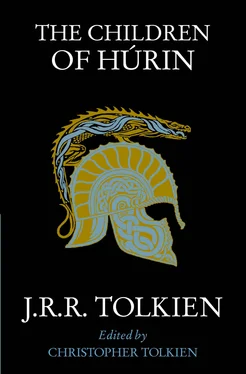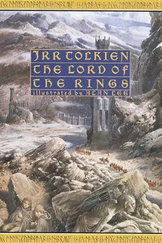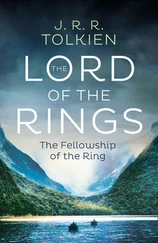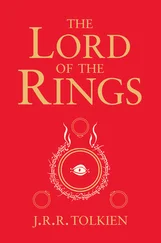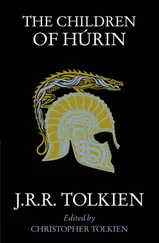It is seen from this reminiscence that from far back it was a part of his conception of what came to be called The Silmarillion that some of the ‘Tales’ should be told in much fuller form; and indeed in that same letter of 1951 he referred expressly to the three stories which I have mentioned above as being much the longest in The Book of Lost Tales. Here he called the tale of Beren and Lúthien ‘the chief of the stories of The Silmarillion ’, and of it he said: ‘the story is (I think a beautiful and powerful) heroic-fairy-romance , receivable in itself with only a very general vague knowledge of the background . But it is also a fundamental link in the cycle, deprived of its full significance out of its place therein.’ ‘There are other stories almost equally full in treatment,’ he went on, ‘and equally independent, and yet linked to the general history’: these are The Children of Húrin and The Fall of Gondolin.
It thus seems unquestionable, from my father’s own words, that if he could achieve final and finished narratives on the scale he desired, he saw the three ‘Great Tales’ of the Elder Days (Beren and Lúthien, the Children of Húrin, and the Fall of Gondolin) as works sufficiently complete in themselves as not to demand knowledge of the great body of legend known as The Silmarillion . On the other hand, as my father observed in the same place, the tale of the Children of Húrin is integral to the history of Elves and Men in the Elder Days, and there are necessarily a good many references to events and circumstances in that larger story.
It would be altogether contrary to the conception of this book to burden its reading with an abundance of notes giving information about persons and events that are in any case seldom of real importance to the immediate narrative. However, it may be found helpful here and there if some such assistance is provided, and I have accordingly given in the Introduction a very brief sketch of Beleriand and its peoples near the end of the Elder Days, when Túrin and Niënor were born; and, as well as a map of Beleriand and the lands to the North, I have included a list of all names occurring in the text with very concise indications concerning each, and simplified genealogies.
At the end of the book is an Appendix in two parts: the first concerned with my father’s attempts to achieve a final form for the three tales, and the second with the composition of the text in this book, which differs in many respects from that in Unfinished Tales .
I am very grateful to my son Adam Tolkien for his indispensable help in the arrangement and presentation of the material in the Introduction and Appendix, and for easing the book into the (to me) daunting world of electronic transmission.
INTRODUCTION
Middle-earth in the Elder Days
The character of Túrin was of deep significance to my father, and in dialogue of directness and immediacy he achieved a poignant portrait of his boyhood, essential to the whole: his severity and lack of gaiety, his sense of justice and his compassion; of Húrin also, quick, gay, and sanguine, and of Morwen his mother, reserved, courageous, and proud; and of the life of the household in the cold country of Dor-lómin during the years, already full of fear, after Morgoth broke the Siege of Angband, before Túrin was born.
But all this was in the Elder Days, the First Age of the world, in a time unimaginably remote. The depth in time to which this story reaches back was memorably conveyed in a passage in The Lord of the Rings. At the great council in Rivendell Elrond spoke of the Last Alliance of Elves and Men and the defeat of Sauron at the end of the Second Age, more than three thousand years before:
Thereupon Elrond paused a while and sighed. ‘I remember well the splendour of their banners,’ he said. ‘It recalled to me the glory of the Elder Days and the hosts of Beleriand, so many great princes and captains were assembled. And yet not so many, nor so fair, as when Thangorodrim was broken, and the Elves deemed that evil was ended for ever, and it was not so.’
‘You remember?’ said Frodo, speaking his thought aloud in his astonishment. ‘But I thought,’ he stammered as Elrond turned towards him, ‘I thought that the fall of Gil-galad was a long age ago.’
‘So it was indeed,’ answered Elrond gravely. ‘But my memory reaches back even to the Elder Days. Eärendil was my sire, who was born in Gondolin before its fall; and my mother was Elwing, daughter of Dior, son of Lúthien of Doriath. I have seen three ages in the West of the world, and many defeats, and many fruitless victories.’
Some six and a half thousand years before the Council of Elrond was held in Rivendell, Túrin was born in Dor-lómin, ‘in the winter of the year,’ as is recorded in the Annals of Beleriand , ‘with omens of sorrow’.
But the tragedy of his life is by no means comprehended solely in the portrayal of character, for he was condemned to live trapped in a malediction of huge and mysterious power, the curse of hatred set by Morgoth upon Húrin and Morwen and their children, because Húrin defied him, and refused his will. And Morgoth, the Black Enemy, as he came to be called, was in his origin, as he declared to Húrin brought captive before him, ‘Melkor, first and mightiest of the Valar, who was before the world.’ Now become permanently incarnate, in form a gigantic and majestic, but terrible, King in the northwest of Middle-earth, he was physically present in his huge fortress of Angband, the Hells of Iron: the black reek that issued from the summits of Thangorodrim, the mountains that he piled above Angband, could be seen far off staining the northern sky. It is said in the Annals of Beleriand that ‘the gates of Morgoth were but one hundred and fifty leagues distant from the bridge of Menegroth; far and yet all too near.’ These words refer to the bridge leading to the dwellings of the Elvish king Thingol, who took Túrin to be his fosterson: they were called Menegroth, the Thousand Caves, far south and east of Dor-lómin.
But being incarnate Morgoth was afraid. My father wrote of him: ‘As he grew in malice, and sent forth from himself the evil that he conceived in lies and creatures of wickedness, his power passed into them and was dispersed, and he himself became ever more earth-bound, unwilling to issue from his dark strongholds.’ Thus when Fingolfin, High King of the Noldorin Elves, rode alone to Angband to challenge Morgoth to combat, he cried at the gate: ‘Come forth, thou coward king, to fight with thine own hand! Den-dweller, wielder of thralls, liar and lurker, foe of Gods and Elves, come! For I would see thy craven face.’ Then (it is told) ‘Morgoth came. For he could not refuse such a challenge before the face of his captains.’ He fought with the great hammer Grond, which at each blow made a great pit, and he beat Fingolfin to the ground; but as he died he pinned the great foot of Morgoth to the earth, ‘and the black blood gushed forth and filled the pits of Grond. Morgoth went ever halt thereafter.’ So also, when Beren and Lúthien, in the shapes of a wolf and a bat, made their way into the deepest hall in Angband, where Morgoth sat, Lúthien cast a spell on him: and ‘suddenly he fell, as a hill sliding in avalanche, and hurled like thunder from his throne lay prone upon the floors of hell. The iron crown rolled echoing from his head.’
The curse of such a being, who can claim that ‘the shadow of my purpose lies upon Arda [the Earth], and all that is in it bends slowly and surely to my will’, is unlike the curses or imprecations of beings of far less power. Morgoth is not ‘invoking’ evil or calamity on Húrin and his children, he is not ‘calling on’ a higher power to be the agent: for he, ‘Master of the fates of Arda’ as he named himself to Húrin, intends to bring about the ruin of his enemy by the force of his own gigantic will. Thus he ‘designs’ the future of those whom he hates, and so he says to Húrin: ‘Upon all whom you love my thought shall weigh as a cloud of Doom , and it shall bring them down into darkness and despair.’
Читать дальше
